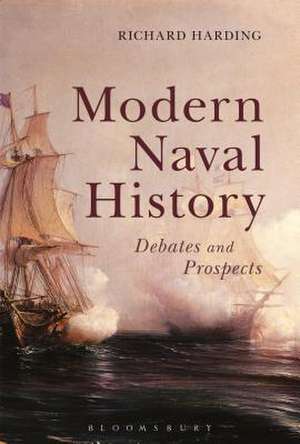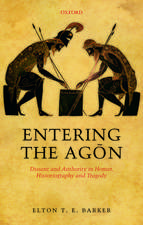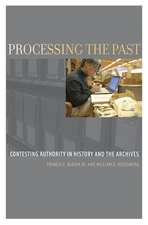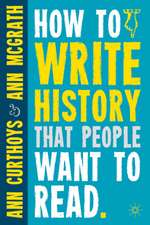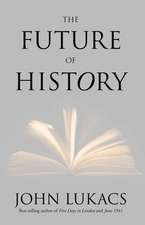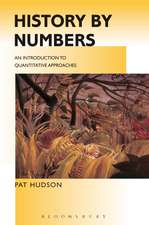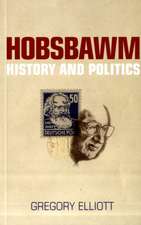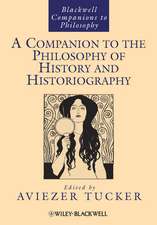Modern Naval History: Debates and Prospects
Autor Richard Hardingen Limba Engleză Paperback – 16 dec 2015
| Toate formatele și edițiile | Preț | Express |
|---|---|---|
| Paperback (1) | 186.35 lei 6-8 săpt. | |
| Bloomsbury Publishing – 16 dec 2015 | 186.35 lei 6-8 săpt. | |
| Hardback (1) | 774.46 lei 6-8 săpt. | |
| Bloomsbury Publishing – 16 dec 2015 | 774.46 lei 6-8 săpt. |
Preț: 186.35 lei
Preț vechi: 228.44 lei
-18% Nou
Puncte Express: 280
Preț estimativ în valută:
35.66€ • 36.95$ • 29.76£
35.66€ • 36.95$ • 29.76£
Carte tipărită la comandă
Livrare economică 22 martie-05 aprilie
Preluare comenzi: 021 569.72.76
Specificații
ISBN-13: 9781472579096
ISBN-10: 1472579097
Pagini: 272
Ilustrații: 15 bw illus
Dimensiuni: 156 x 234 x 18 mm
Greutate: 0.41 kg
Editura: Bloomsbury Publishing
Colecția Bloomsbury Academic
Locul publicării:London, United Kingdom
ISBN-10: 1472579097
Pagini: 272
Ilustrații: 15 bw illus
Dimensiuni: 156 x 234 x 18 mm
Greutate: 0.41 kg
Editura: Bloomsbury Publishing
Colecția Bloomsbury Academic
Locul publicării:London, United Kingdom
Caracteristici
Reflects the increasing emphasis on global and inter-disciplinary investigations to deal with big questions in modern history
Notă biografică
Richard Harding is Professor of Organisational History and Head of the Department of Leadership and Development, Westminster Business School, University of Westminster, UK. He has authored and edited numerous books on naval history, was editor of the Mariner's Mirror (2000-2005) and Chairman of the Society for Nautical Research (2005-11). He is also a Fellow of the Royal Historical Society.
Cuprins
PrefaceIntroduction1. Sea Power and International Relations: History in the Service of Policy2. Navies, Politics and Government: 1500-17893. Navies and Societies: The widening research agendaConclusion: The Future of Naval History?NotesSelect BibliographyIndex
Recenzii
Harding has produced a remarkably concise and useful volume that succeeds in sketching out the important debates within naval history, as well as making a good case for the topic's enduring importance. Furthermore, the author has done an admirable job in establishing that naval history is very much a part of the community of academic historians, and is far more than the simple chronicle of admirals, captains, and battles at sea that some have claimed. This book will be required reading for graduate students and scholars engaged in serious scholarship on modern naval history for at least the next decade, and Harding should be commended for this major contribution to its study.
Richard Harding's new volume is certainly the most important single contribution to understanding the field of modern naval history in recent years. With numerous reference notes and a full bibliography ... Harding succinctly describes and analyses the main trends, debates, and issues within this sub-field of the broader subject of maritime history.
This book will undoubtedly prove to be an initial navigational chart for many future research projects. History professors teaching naval history will find it invaluable for student understanding of the broad issues interwoven throughout the subject. Seasoned researchers will find it a valuable reference. Importantly, those in adjacent historical fields, of which Harding describes many, would do well to pick through this book for the potential contributions of naval history to their own research. In this book, we have a tool that does what it says on the tin.
Naval history has long been split between the evolving intellectual demands of academic scholarship and the pressing didactic purposes of naval education, tactical methods and strategic judgement. This elegantly argued and expertly resourced text provides practitioners and consumers with an expert guide to the ideas of the past, present-day practice and future prospects in a rapidly evolving field of study.
Debates and Prospects sweeps confidently across the whole range and diversity of one of the liveliest areas of history today, casting light on many fascinating corners which even the experts will scarcely have heard of.
This analysis of the development of naval history is among the most sophisticated studies of historiography ever published. Not simply a study in bibliography but an investigation of the relations between navies, international affairs, and domestic institutions and societies, it probes the nature and uses of naval history over the past century and a half and assesses the influence of naval historians and their work on government policymakers. Historians will particularly value its explanation of topics needing further study and defense analysts its evaluation of the potential usefulness in understanding the role of naval forces in peacetime deterrence.
A timely and welcome overview of the trajectory of naval history over the past 130 years that focuses on major themes of contemporary interest, in particular navies and the states and societies that create and employ them, and the nexus between naval power and international relations. Harding succinctly surveys the current state of the literature and points to areas where further research is needed. An ideal starting-place for those new to the field, such as graduate students, and a valuable reference tool for seasoned practitioners.
Richard Harding's new volume is certainly the most important single contribution to understanding the field of modern naval history in recent years. With numerous reference notes and a full bibliography ... Harding succinctly describes and analyses the main trends, debates, and issues within this sub-field of the broader subject of maritime history.
This book will undoubtedly prove to be an initial navigational chart for many future research projects. History professors teaching naval history will find it invaluable for student understanding of the broad issues interwoven throughout the subject. Seasoned researchers will find it a valuable reference. Importantly, those in adjacent historical fields, of which Harding describes many, would do well to pick through this book for the potential contributions of naval history to their own research. In this book, we have a tool that does what it says on the tin.
Naval history has long been split between the evolving intellectual demands of academic scholarship and the pressing didactic purposes of naval education, tactical methods and strategic judgement. This elegantly argued and expertly resourced text provides practitioners and consumers with an expert guide to the ideas of the past, present-day practice and future prospects in a rapidly evolving field of study.
Debates and Prospects sweeps confidently across the whole range and diversity of one of the liveliest areas of history today, casting light on many fascinating corners which even the experts will scarcely have heard of.
This analysis of the development of naval history is among the most sophisticated studies of historiography ever published. Not simply a study in bibliography but an investigation of the relations between navies, international affairs, and domestic institutions and societies, it probes the nature and uses of naval history over the past century and a half and assesses the influence of naval historians and their work on government policymakers. Historians will particularly value its explanation of topics needing further study and defense analysts its evaluation of the potential usefulness in understanding the role of naval forces in peacetime deterrence.
A timely and welcome overview of the trajectory of naval history over the past 130 years that focuses on major themes of contemporary interest, in particular navies and the states and societies that create and employ them, and the nexus between naval power and international relations. Harding succinctly surveys the current state of the literature and points to areas where further research is needed. An ideal starting-place for those new to the field, such as graduate students, and a valuable reference tool for seasoned practitioners.
